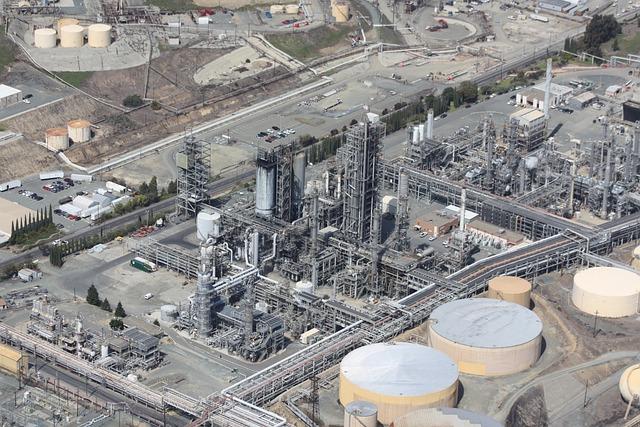What Kind Of Gas For Jeep Grand Cherokee
When it comes to fueling up your trusty Jeep Grand Cherokee, the type of gas you choose can make all the difference in its performance on and off the road. With a variety of fuel options available at the pump, it’s important to know which type is best suited for your vehicle. From unleaded to premium, diesel to flex-fuel, the choices can be overwhelming. In this article, we’ll explore the different types of gas for your Jeep Grand Cherokee and help you determine which one will keep your ride running smoothly for miles to come.
Table of Contents
- Types of Gasoline Recommended for Jeep Grand Cherokee
- Understanding Octane Ratings and Their Impact on Performance
- The Importance of Using Top Tier Gasoline Brands
- Considerations for Flex Fuel Options and E85 Compatibility
- Tips for Maximizing Fuel Efficiency in Your Jeep Grand Cherokee
- Frequently Asked Questions
- The Way Forward
Types of Gasoline Recommended for Jeep Grand Cherokee
When it comes to fueling up your Jeep Grand Cherokee, it’s important to choose the right type of gasoline to keep your vehicle running smoothly. Different Jeep Grand Cherokee models may have different recommendations for the type of gasoline to use. However, as a general rule of thumb, most Jeep Grand Cherokee models are recommended to use regular unleaded gasoline with an octane rating of 87 or higher.
Using gasoline with a lower octane rating can lead to knocking or pinging in your engine, which can ultimately decrease performance and fuel efficiency. On the other hand, using gasoline with a higher octane rating than recommended is unnecessary and can also be a waste of money. It’s best to stick with the manufacturer’s recommendations to ensure optimal performance from your Jeep Grand Cherokee.
Below is a quick reference guide for the types of gasoline recommended for some popular Jeep Grand Cherokee models:
| Jeep Grand Cherokee Model | Recommended Gasoline |
|---|---|
| Jeep Grand Cherokee Laredo | Regular Unleaded (87 octane) |
| Jeep Grand Cherokee Limited | Regular Unleaded (87 octane) |
| Jeep Grand Cherokee Trailhawk | Regular Unleaded (87 octane) |

Understanding Octane Ratings and Their Impact on Performance
Octane ratings can have a significant impact on the performance of your Jeep Grand Cherokee. The type of gas you use can affect your engine’s overall efficiency, power output, and fuel economy. Understanding octane ratings and choosing the right fuel for your vehicle is crucial for optimal performance.
When it comes to selecting the right gas for your Jeep Grand Cherokee, it’s important to know the difference between regular, mid-grade, and premium gasoline. Regular gasoline typically has an octane rating of 87, while mid-grade ranges from 89 to 90, and premium gas is usually around 91 or higher. Using a higher octane fuel than what your vehicle requires may not necessarily improve performance, but using a lower octane fuel than recommended can cause engine knocking and decreased performance.
For most Jeep Grand Cherokee models, the manufacturer recommends using gasoline with an octane rating of 87. However, certain trims, such as the Grand Cherokee SRT, may require premium fuel with a higher octane rating. Always refer to your owner’s manual to determine the correct octane rating for your specific model. Investing in the right type of gas can help ensure your Jeep Grand Cherokee operates at its best and performs efficiently on the road.
The Importance of Using Top Tier Gasoline Brands
When it comes to fueling your Jeep Grand Cherokee, it is essential to prioritize using top-tier gasoline brands that meet the necessary standards for your vehicle’s performance and longevity. Top-tier gasoline brands are known for their superior quality and can provide a variety of benefits to your vehicle, including:
- Improved engine performance
- Increased fuel efficiency
- Reduced emissions
- Prevention of engine deposit buildup
By using top-tier gasoline brands in your Jeep Grand Cherokee, you can ensure that your vehicle is running at its best and prolong its lifespan.
It is recommended to refer to your Jeep Grand Cherokee’s owner’s manual to determine the best type of gasoline to use for optimal performance. Using the correct type of gasoline can prevent engine knocking, pinging, and potential damage to the engine over time. Investing in quality gasoline can save you money in the long run by preventing costly repairs and maintaining your vehicle’s overall value.
Considerations for Flex Fuel Options and E85 Compatibility
When considering flex fuel options and E85 compatibility for your Jeep Grand Cherokee, it’s important to understand the potential benefits and drawbacks of using ethanol-based fuels. Here are some key points to keep in mind:
Factors to consider:
- Flex fuel vehicles like the Jeep Grand Cherokee are designed to run on a variety of fuel types, including E85 (a blend of 85% ethanol and 15% gasoline).
- While E85 can be cheaper than regular gasoline, it typically provides lower fuel efficiency, which may offset the cost savings.
- Using E85 can also impact engine performance and may require more frequent maintenance due to its corrosive nature.
Recommendations:
- If you decide to use E85 in your Jeep Grand Cherokee, be sure to check your owner’s manual for specific recommendations and guidelines.
- Consider the availability of E85 in your area, as not all gas stations offer this fuel option.
- It’s important to weigh the potential cost savings of E85 against any potential negative impacts on fuel efficiency and engine performance.
Tips for Maximizing Fuel Efficiency in Your Jeep Grand Cherokee
In order to maximize fuel efficiency in your Jeep Grand Cherokee, it is important to use the right kind of gas. While the manufacturer recommends using regular unleaded gasoline with an octane rating of 87, some drivers may choose to use premium gasoline for improved performance. However, it is essential to note that using premium gas may not necessarily result in better fuel efficiency, making it more of a personal preference.
When deciding on the type of gas to use for your Jeep Grand Cherokee, consider the following tips:
– Stick to regular unleaded gasoline with an octane rating of 87 for optimal fuel efficiency.
– Avoid using gas with higher octane ratings unless recommended by a mechanic for specific performance reasons.
– Keep an eye on gas prices and fill up at stations that offer competitive prices to save money in the long run.
By following these tips, you can ensure that your Jeep Grand Cherokee continues to run smoothly and efficiently, while also saving money on gas in the process. Remember, the key to maximizing fuel efficiency lies in using the right kind of gas for your vehicle.
Frequently Asked Questions
Q: What kind of gas should I use for my Jeep Grand Cherokee?
A: When it comes to fueling up your Jeep Grand Cherokee, it’s recommended to use unleaded gasoline with an octane rating of 87 or higher. This helps ensure proper engine performance and fuel efficiency.
Q: Can I use E85 or flex fuel in my Jeep Grand Cherokee?
A: It is not recommended to use E85 or flex fuel in your Jeep Grand Cherokee unless it is specified by the manufacturer. Using the wrong type of fuel can potentially damage your engine and void your warranty.
Q: Will using premium gasoline improve the performance of my Jeep Grand Cherokee?
A: Using premium gasoline may provide a slight performance boost in some high-performance vehicles, but in most cases, regular unleaded gasoline with the recommended octane rating will suffice for the Jeep Grand Cherokee.
Q: What are the potential consequences of using the wrong type of gas in my Jeep Grand Cherokee?
A: Using the wrong type of gas in your Jeep Grand Cherokee can lead to engine knocking, reduced fuel efficiency, and potential damage to the engine components. It’s best to stick to the manufacturer’s recommendations for optimal performance and longevity.
The Way Forward
choosing the right kind of gas for your Jeep Grand Cherokee is crucial to ensuring optimal performance and efficiency. Whether you opt for regular unleaded, premium, or diesel fuel, it’s important to follow the manufacturer’s recommendations and consider factors such as your driving habits and environment. By taking care to select the proper fuel for your vehicle, you can keep your Jeep running smoothly for many miles to come. Drive safely and happy travels!
